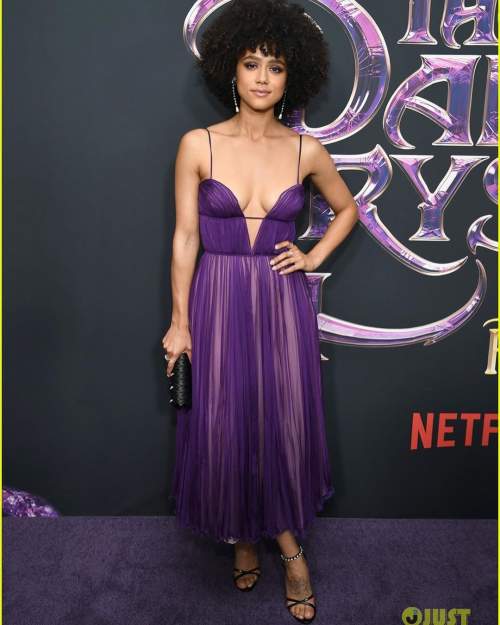Nathalie Emmanuel
Nathalie Joanne Emmanuel was born on March 2, 1989. Emmanuel started her acting career performing in theater in the latter part of the 1990s. Then she was offered roles in several West End productions including The Lion King. In 2006, she started her screen career in the role of Sasha Valentine in soap opera Hollyoaks in the following year, and then she was a part of a variety of British TV shows until her debut film appearance in Twenty8k.Emmanuel received international recognition for her performance as Missandei in the HBO fantasy series Game of Thrones (2013-2019), and continued her career by playing supporting roles in Maze Runner: The Scorch Trials (2015) and its sequel Maze Runner: The Death Cure (2018), the Fast & Furious films Furious 7 (2015), The Fate of the Furious (2017) as well as F9 (2021) and played a part in Army of Thieves (2021).Emmanuel was born on the 2nd of March, 1989 in Southend-on-Sea in Essex, England. Her mother is Dominican, as is her father, who is half-Saint Lucian and half English descent. She has a younger sibling. Emmanuel remembers that her mother was the first person to recognize her talent for acting when she was a student at St Hilda's School. It shut down in 2014. The Westcliff High School For Girls grammar school followed. In an interview with New York Daily News, she commented "When I was three, I would always caused drama that my mother thought I should channel it properly--so she began me taking singing, dancing and acting classes".At the age of 10 she appeared as Young Nala in the West End production of the musical The Lion King. Later that year, she was selected as Missandei, Daenerys Targaryen's interpreter in HBO's fantasy series Game of Thrones. She admitted to Jimmy Kimmel that she heard about her winning the role while working as a shop assistant in an apparel store. Emmanuel was elevated to an official cast member on the show in 2015. Missandei is the sole prominent female character on the show was a woman-of-colour. The scene where she was chained to death was not popular with viewers. It was also called an example of fodging and was evoked with images of slavery. Emmanuel later stated to The Guardian: The response to her death was large because she was so alone. People who felt excluded or who were marginalized felt connected to her, or were perceived by them, particularly women of colour. It was incredibly difficult for people to see her go, especially when it happened in the manner that she was treated. That's how they are going to honor the only woman in their own race.


Comments
Post a Comment